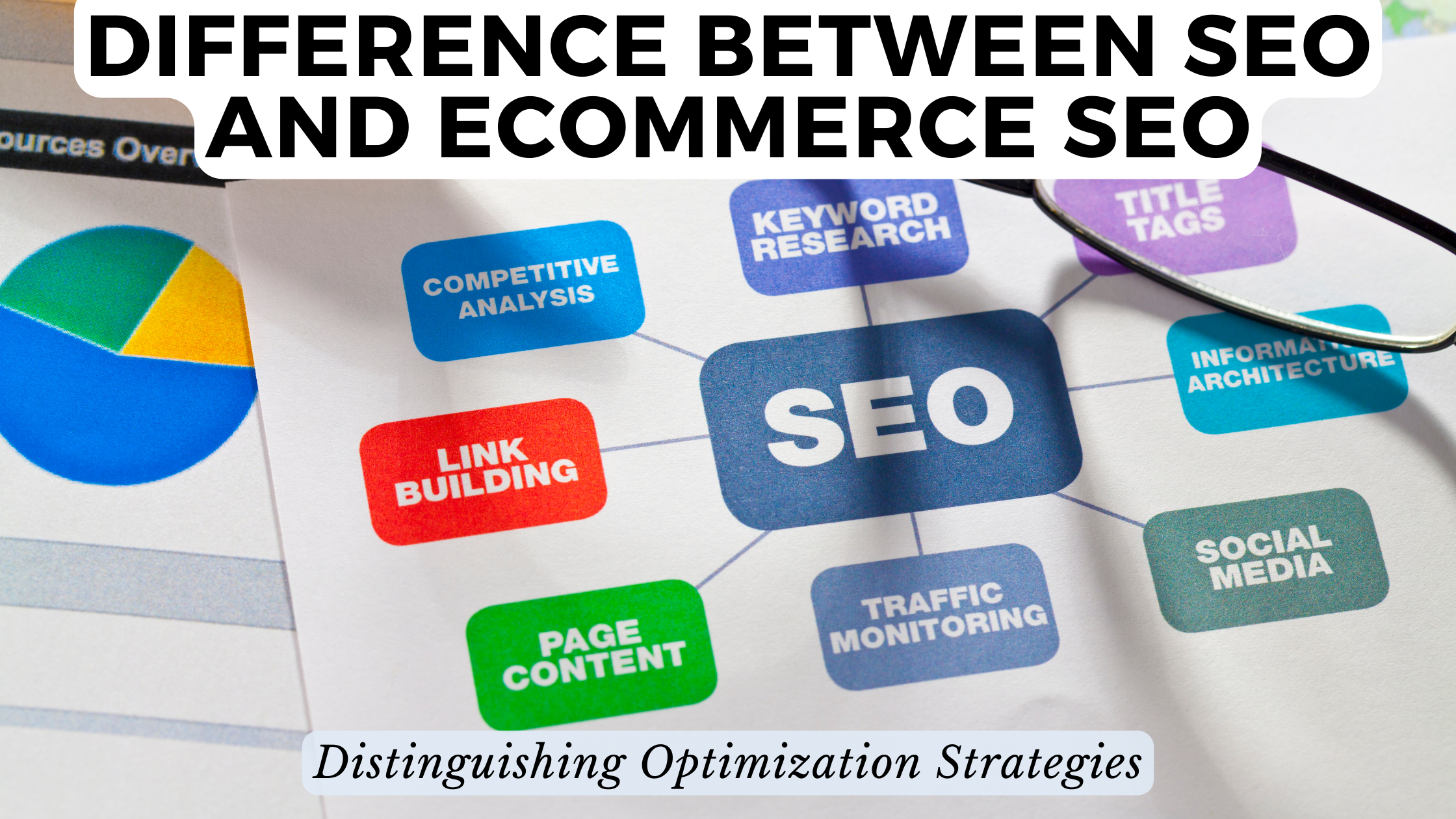Difference Between SEO and Ecommerce SEO: Distinguishing Optimization Strategies


Difference Between SEO and Ecommerce SEO: Distinguishing Optimization Strategies
Understanding the nuances between general SEO and Ecommerce SEO is crucial for businesses looking to optimize their online presence. In this comprehensive guide, we will delve into the key distinctions in optimization strategies and explore SaaS tools that can elevate your SEO game.
Exploring SEO and Ecommerce SEO
1. Fundamentals of SEO:
Search Engine Optimization (SEO) encompasses strategies to enhance a website’s visibility on search engines. Traditional SEO focuses on improving overall online presence, organic search rankings, and user experience.
2. Ecommerce SEO Defined:
Ecommerce SEO is a specialized branch that tailors optimization strategies for online stores. The emphasis is on product pages, user journey, and transactional queries, optimizing the entire online shopping experience.
3. Keyword Research in SEO:
General SEO prioritizes keywords related to the business’s overarching theme. Tools like Ahrefs and SEMrush aid in comprehensive keyword research for content optimization.
4. Product-Centric Keywords in Ecommerce SEO:
Ecommerce SEO hones in on product-centric keywords, focusing on specific items sold. Tools like Ubersuggest assist in identifying product-related search terms for optimal product page optimization.
5. On-Page SEO for General Optimization:
Traditional SEO emphasizes on-page elements like meta tags, headers, and content structure to improve page relevance. Plugins like Yoast SEO for WordPress offer valuable on-page optimization features.
6. Product Page Optimization in Ecommerce SEO:
Ecommerce SEO delves into optimizing product pages with compelling product descriptions, customer reviews, and clear calls-to-action. Platforms like Shopify provide built-in tools for effective product page optimization.
7. Link Building for SEO:
General SEO aims at building a diverse backlink profile to enhance domain authority. Tools like Moz provide insights into backlink profiles and help in devising link-building strategies.
8. Internal Linking in Ecommerce SEO:
Ecommerce SEO prioritizes internal linking within the online store to improve navigation and distribute link equity effectively. Content management systems like Magento facilitate seamless internal linking.
SaaS Tools for Elevated SEO Strategies
As you navigate the realms of SEO and Ecommerce SEO, consider incorporating these SaaS tools for a more streamlined and effective optimization process:
1. Ahrefs
Uncover comprehensive insights into competitor strategies, backlink analysis, and keyword research.
2. SEMrush
A versatile tool offering features like keyword tracking, site audit, and competitor analysis.
3. Yoast SEO
A WordPress plugin facilitating on-page optimization with content analysis and readability checks.
4. Ubersuggest
Identify product-related search terms for optimal product page optimization.
5. Moz
Gain valuable insights into your backlink profile and discover link-building opportunities.
6. Shopify
A comprehensive ecommerce platform with built-in tools for effective product page optimization.
7. Magento
A content management system facilitating seamless internal linking within an ecommerce store.
(All links open in a new tab.)
Conclusion
Distinguishing between SEO and Ecommerce SEO is pivotal for tailoring optimization strategies to specific business needs. Whether you operate a general website or an online store, leveraging the right tools can significantly impact your digital success.
Subscribed.FYI is your go-to platform for optimizing your SaaS stack. Sign up for Subscribed.FYI Deals to unlock exclusive savings on over 100 SaaS tools, including those essential for both SEO and Ecommerce SEO. Your journey to elevated optimization begins with informed decisions.
Relevant Links:








